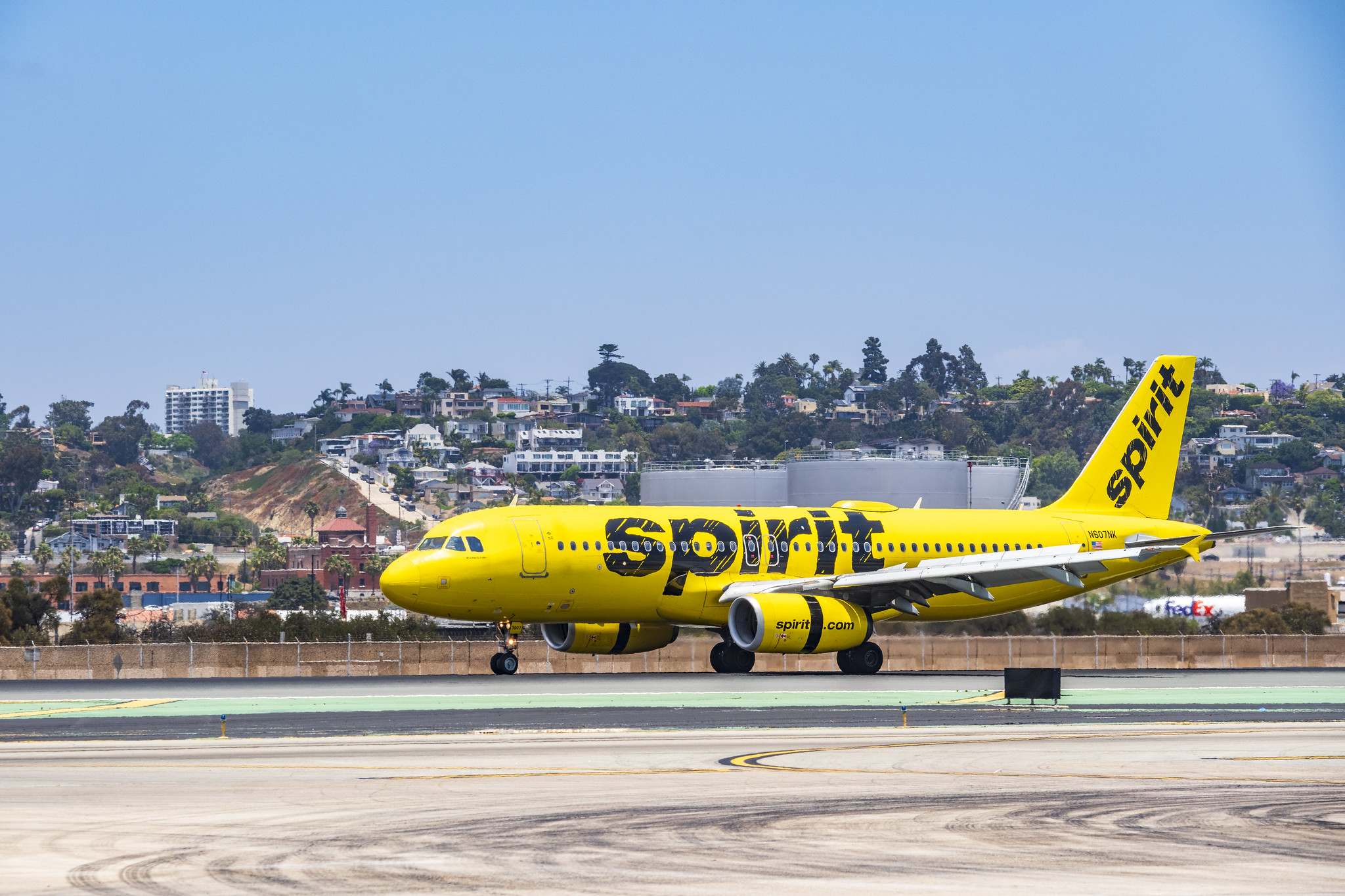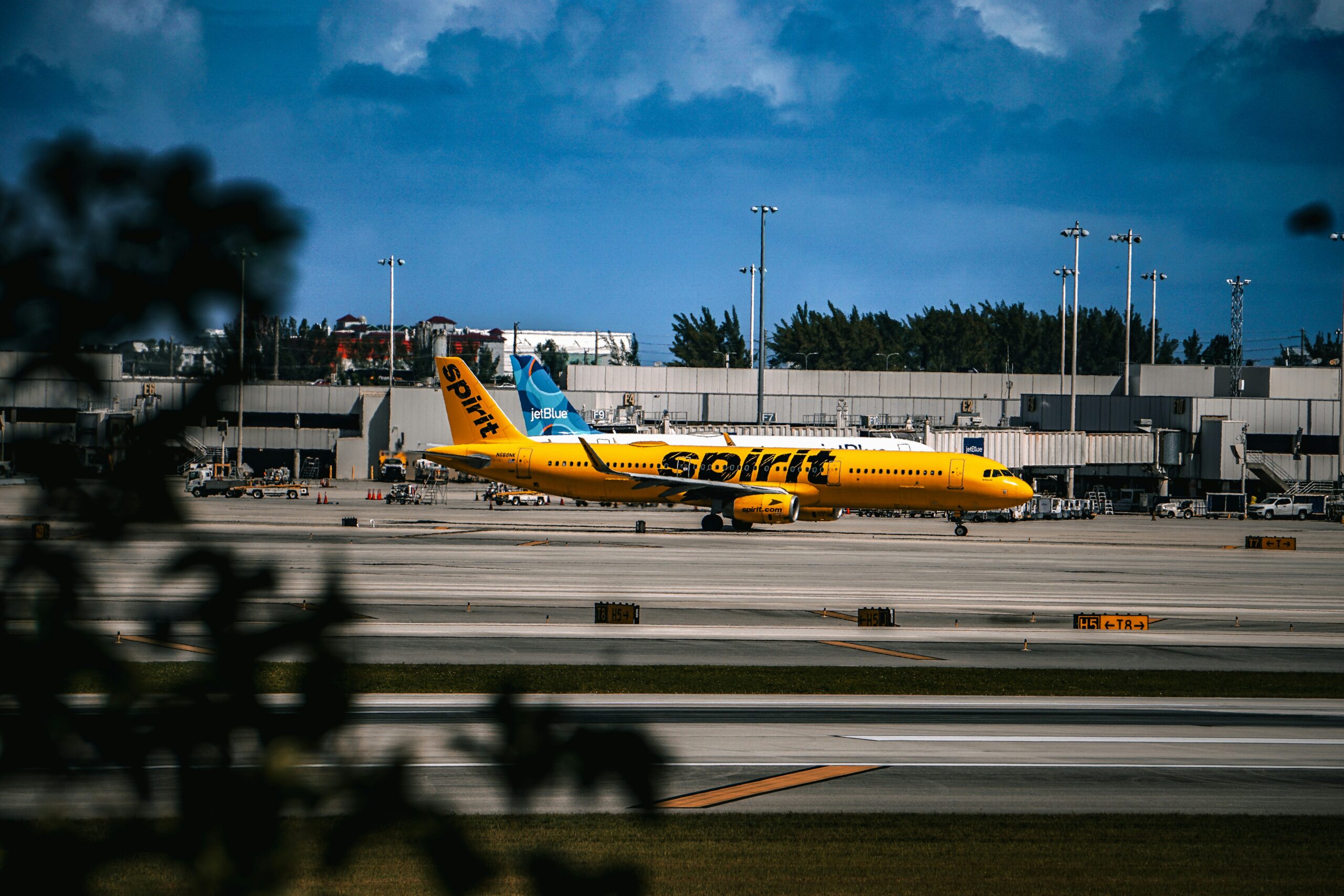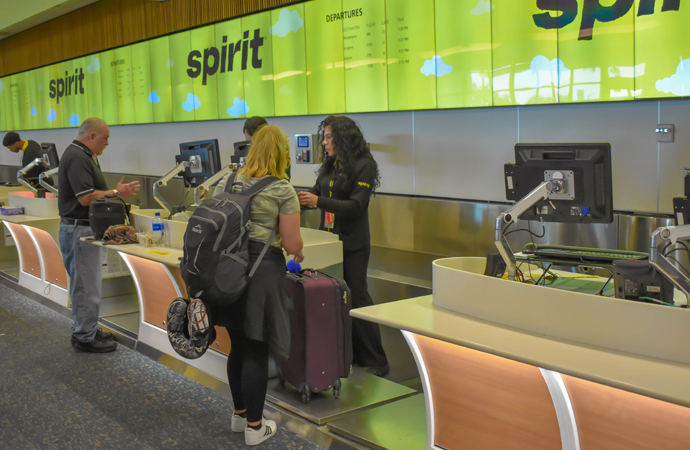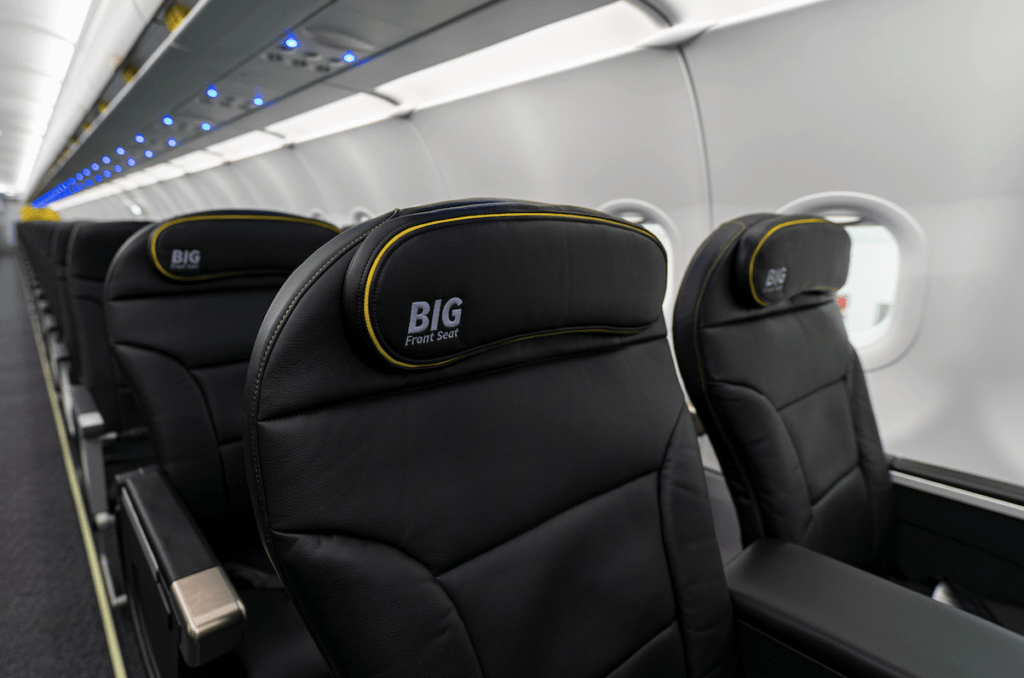Spirit CEO Resigns Weeks After Leading Carrier Out of Bankruptcy
Ted Christie, along with CCO Matt Klein, have stepped down with immediate effect
by Fergus Cole
April 8, 2025

Photo: Courtesy of Spirit Airlines
Ted Christie, Chief Executive Officer of Spirit Airlines, has resigned from his position with immediate effect, just weeks after leading the low-cost carrier out of bankruptcy.
Christie’s decision to step down from his leadership role was confirmed in a press release on Monday, April 7. It was also announced that Matt Klein, the airline’s Executive Vice President and Chief Commercial Officer, is immediately vacating his role.

Photo: Ted Christie. Courtesy of Spirit Airlines
Spirit has confirmed that Klein will be replaced by Rana Gosh – who has worked for the airline since 2015 – as Senior Vice President and Chief Commercial Officer. However, a new CEO has yet to be confirmed as Spirit’s Board of Directors continues its process of appointing Christie’s permanent replacement.
In the interim, a temporary trio of executives will lead the airline. This team will include Executive Vice President and Chief Financial Officer Fred Cromer, Executive Vice President and Chief Operating Officer John Benoraitis, and Senior Vice President and General Counsel Thomas Canfield.
Sudden Exit
“On behalf of the Board and the Spirit team, I thank Ted for his tireless efforts over the course of his 13 years at the Company,” said Robert Milton, Chairman of Spirit Airlines.
“He has seen a lot and done a lot during his tenure here, including navigating the company through the COVID crisis and multiple strategic junctures, as well as most recently, a corporate restructuring. Ted has kept the company together through challenging times, and for this we wish him all the best going forward.”

Photo: Courtesy of San Diego International Airport
Ted Christie first joined Spirit as Chief Financial Officer in 2012, previously being the CFO of fellow low-cost carrier Frontier Airlines. He was then promoted to CEO in 2019 and has since overseen a turbulent few years for the airline.
Like most airlines, Spirit struggled financially during the COVID-19 pandemic, and those struggles have continued until now. In an attempt to regain profitability, Spirit had been considering a merger with Frontier Airlines since at least 2022 before ditching those plans for a more lucrative takeover offer from JetBlue.
However, hopes of a potential merger with JetBlue were finally dashed in January 2024 after a U.S. judge blocked the deal on antitrust grounds.

Then, after years of heavy losses and mounting debt, Spirit filed for Chapter 11 bankruptcy in November 2024, the first major U.S. carrier to do so since 2011. However, after a four-month financial restructuring plan, Christie managed to steer Spirit out of bankruptcy in March.
What next for Spirit?
While Spirit’s recent financial struggles have been no secret, Christie’s sudden resignation has taken many by surprise. According to the New York Post, Christie was just months away from being eligible for a $3.8 million retention bonus, and Spirit hasn’t provided any reason for his exit.
However, recent reports suggest that Spirit plans to revamp its business model to move on from its financial troubles, which would include abandoning its long-held ultra-low-cost model.
Changing consumer habits since the pandemic has meant that its once-successful model of charging low fees with additional charges for extras like baggage and seat selection is no longer as profitable as it once was. This has been compounded by rising operational costs, increased competition, and inflation.

Spirit Airlines counter in Orlando International Airport / Photo: Viaval Tours/Shutterstock
According to the airline, it could generate 13 percent more revenue per passenger if it transformed itself into a premium airline, while it has also suggested it has plans to overhaul its loyalty program and seek alliances with other carriers.
After emerging from bankruptcy protection last month, Christie said Spirit would focus on transforming the guest experience going forward.
“We’re pleased to complete our streamlined restructuring and emerge in a stronger financial position to continue our transformation and investments in the Guest experience,” he said.
“Throughout this process, we’ve continued to make meaningful progress enhancing our product offerings, while also focusing on returning to profitability and positioning our airline for long-term success. Today, we’re moving forward with our strategy to redefine low-fare travel with our new, high-value travel options.”

Photo: Courtesy of Spirit Airlines
Until a new CEO of Spirit is confirmed, it’s not yet clear how the airline will go about transforming its image, and any potential merger with Frontier Airlines in the future has yet to be ruled out completely.
Once Spirit Airlines appoints its new CEO, we might get a clearer picture of how the airline will go about transforming its image, including whether it totally abandons its ultra-low-cost model or simply adopts a few travel enhancements for additional fees. A potential merger with Frontier Airlines has also yet to be completely ruled out, although it’s unlikely in the foreseeable future.
However, the immediate task of any new leader will be to return the carrier to profitability for the first time in five years.




